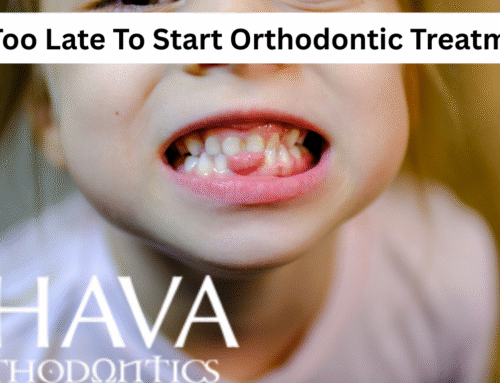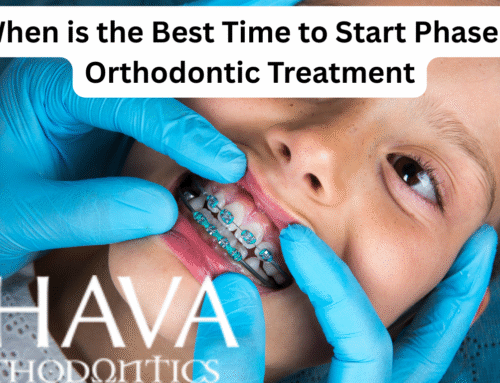Ahava Orthodontics helps Fort Worth patients explore options for sleep apnea treatment. The team explains how orthodontics can support better breathing, when to seek medical care, and what families can expect during evaluation. By combining expertise in jaw alignment and airway development, the practice works alongside medical providers to create healthier sleep patterns for children and adults.
For many families, the first question is whether orthodontics can actually make a difference with sleep apnea. Here’s a closer look at how treatment works and what patients should know.
What Is Sleep Apnea and Why It Matters
Sleep apnea is a condition where breathing repeatedly stops and starts during sleep. The most common type, obstructive sleep apnea (OSA), occurs when the airway is blocked by relaxed throat muscles, jaw position, or other structural issues.
For children, sleep apnea can lead to behavioral challenges, poor school performance, and slowed growth. Adults may experience daytime fatigue, headaches, or an increased risk of heart problems. Untreated sleep apnea can affect both health and quality of life.
Learn more about this condition from the American Academy of Sleep Medicine.
How Orthodontics Plays a Role in Sleep Apnea Treatment
While orthodontists do not diagnose sleep apnea, they play an important role in treatment. Jaw growth and alignment directly influence the airway, and orthodontic appliances can help improve breathing.
For children, treatment may include:
-
Palatal expanders to widen the upper jaw and open the nasal airway
-
Functional appliances to guide jaw growth forward
-
Monitoring habits like thumb-sucking or mouth breathing that affect development
For adults, orthodontics may support sleep apnea care through:
-
Mandibular advancement devices that reposition the lower jaw during sleep
-
Orthognathic surgery in severe cases to permanently reposition the jaws and airway structures
-
Complementary orthodontics to align teeth and ensure a stable bite after jaw repositioning
Visit our Jaw Repositioning page to see how these treatments improve both bite and breathing.
Signs of Sleep Apnea Families Should Watch For
Parents often wonder how to tell if their child may have sleep apnea. Common signs include:
-
Snoring or noisy breathing at night
-
Restless sleep or frequent waking
-
Mouth breathing during the day
-
Bedwetting beyond early childhood
-
Irritability, hyperactivity, or difficulty concentrating in school
For adults, symptoms often include:
-
Loud snoring
-
Morning headaches
-
Daytime fatigue or falling asleep during routine activities
-
Waking with a dry mouth or sore throat
If you notice these signs, it’s important to schedule an evaluation. While orthodontic care can help, a formal diagnosis may require a sleep study.
What to Expect During Sleep Apnea Evaluation
At Ahava Orthodontics, the evaluation begins with a full exam of the teeth, jaws, and facial structure. The orthodontist looks for signs of restricted airways, narrow arches, or bite problems that may be contributing to symptoms.
If sleep apnea is suspected, the patient may be referred to a sleep physician for testing. Once a diagnosis is confirmed, the orthodontist and physician can coordinate care. Treatment may involve orthodontic appliances, surgical options, or a combination approach.
This collaboration ensures that patients receive comprehensive care tailored to their individual needs. Learn more about surgical support options on our Orthognathic Surgery page.
What Fort Worth Patients Care About Most
Patients and parents often want reassurance that sleep apnea treatment will truly improve health. Orthodontic approaches address the structural issues that affect breathing, which means the improvements are often long-lasting.
Families also value comfort and support throughout the process. At Ahava Orthodontics, patients receive clear explanations, follow-up care, and coordination with medical providers when needed.
One Fort Worth parent shared:
“We never realized my son’s restless sleep was related to his jaw. The orthodontic team explained everything and worked with our doctor. Now he sleeps through the night and has so much more energy.”
This type of care goes beyond straighter teeth—it impacts overall health and quality of life.
Get the Help You Need
When you need sleep apnea treatment in Fort Worth, call 817-926-9777 to schedule an evaluation. Ahava Orthodontics will examine your case, explain your options, and work with you and your medical providers to improve both sleep and overall well-being.




